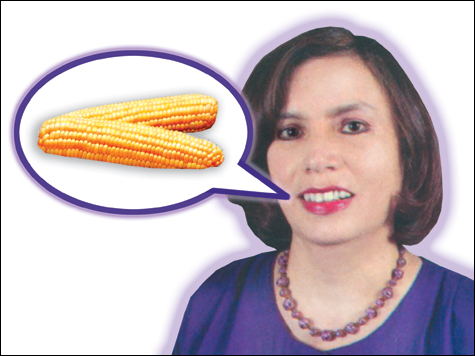
CÒMO SE DICE: tedious en español?
|
When conservatives obsess over the People’s Republic of Cambridge, this is the kind of thing they have in mind. The place: the Women’s Center on Pleasant Street, a fragrance-free, man-free (usually) spot whose walls boast fliers for female drum circles and LGBT support groups. The event: a press conference by one Walda Barrios, a candidate for the Guatemalan vice-presidency who’s running on the ticket of URNG-MAIZ, a leftist political party with revolutionary roots.
To National Review types, it’s a scenario that oozes menace: a female Che drumming up support for her perfidious cause amid fellow radicals . . . right here in the United States. But this grim vision doesn’t quite square with Barrios’s visit to the Women’s Center this past Monday — which, simultaneously, was a major snooze fest and a compelling piece of evidence that Cambridge leftism isn’t what it used to be.
A few minutes after the designated 11 am start time, Barrios, a kind-looking woman clad in an URNG-MAIZ halter top (message in Spanish: My heart is on the left!) and clunky red jewelry, was chatting up a local Spanish-language journalist. Ten or so people milled around waiting for the main event: Barrios’s handlers, a couple reporters, some Women’s Center staffers. Rene Van Rompay, a former Catholic missionary who runs Boston’s Guatemala Solidarity Committee, approached this reporter and spoke about Barrios’s politics and the recent rise of the Latin American left. Then, after a few minutes, he segued into a wistful remembrance of the good old days. “At one time, we had an umbrella organization called CASA, with a small office in Harvard Square,” he recalled. “For a couple years, we had [committees] for Honduras, El Salvador, Guatemala, Nicaragua, Cuba . . . ” No more: Van Rompay’s group still meets in Cambridge, but the other groups and the Harvard Square office are long gone.
A few minutes later, Barrios began delivering her remarks in Spanish; a translator promptly rendered them into English. At first, the small crowd — most of whose members looked to be 60 or older — listened attentively: when Barrios finished a particular point, they smiled and nodded encouragingly.
Soon, though, the group’s collective enthusiasm seemed to wane. If the language barrier and the audience’s average age were partly responsible, so was Barrios’s lack of rhetorical flair: she spoke by leafing through URNG-MAIZ’s 30-page governing program, arbitrarily picking out parts to discuss. Occasionally, this led Barrios to an interesting topic (violence against women, the use of Guatemala’s military as a domestic police force). Most of the time, though, it made for mind-bogglingly dry speechifying (the anthropological significance of URNG-MAIZ’s corn logo, something called the “democratic sustainable territorialization of communities”). As the minutes passed, one older woman struggled not to fall asleep, then got up and left the room. The smiles grew slightly strained. Even Dave Goodman, co-host of WMBR-FM’s Radio with a View program, looked to be growing restless.
Finally, after more than an hour, Barrios wrapped up her spiel. Van Rompay called for questions. I ventured one: why, exactly, had Barrios decided to come to Cambridge? Her response suggested that she didn’t understand the question or couldn’t answer it: she was in the United States, Barrios answered, to foster cross-cultural dialogue and connect with Guatemalan immigrants. So much for the People’s Republic.